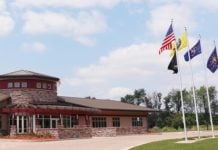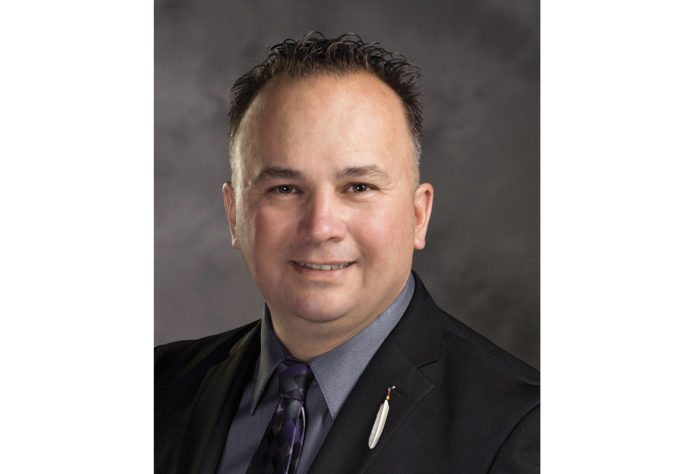by Andrew Hofstetter
People are affected physically, mentally, and spiritually when something traumatic happens in their life, especially in the COVID-19 climate of 2020. The first known case of COVID-19 was in Hubei province, in the city of Wuhan, China on November 17, 2019. Everyone watched as the virus made its way to America. The first documented case in the U.S. was in Snohomish County, WA on January 19, 2020. As time progressed, the number of affected people and the number of deaths rose, keeping the nation in a constant state of panic.
COVID-19 has not only changed America, but it has changed the landscape and the way Indian Country, and Indian gaming operates for the foreseeable future. In this realm of uncertainty, customers, tribes/tribal casinos have found themselves adapting to change through what could be considered the unavoidable reality of COVID-19 in 2020. The learning curve was tight and narrow as tribes and Indian gaming adapted quickly to pandemic discussions, developing policies and protocols, while carrying the stress of customers, staff, and tribal membership through difficult times. Understanding the influence and effect of these changes can make your organization stronger, or weaker, on how each adapt to the COVID-19 storm.
In a great effort to protect the public, staff, tribal membership, tribal enterprise (casino and hotel), and community, tribal leaders started closing tribal enterprises around mid-February 2020. As a result of those closures, many were affected. To recover financially, tribes had to adapt to the changes that were brought by the pandemic and identify ways to live and work safely with COVID-19. Around May and June, tribes had to consider the following essential elements before reopening to restart their economic engines:
Plan, Communicate, Train and Work Together: Having a reopening plan that identifies health and safety concerns; COVID-19 pandemic protocols; policies; cleaning; training requirements; and social distancing is crucial. It’s also important for the leadership to communicate to all staff and customers on a regular basis through the highs and lows of the pandemic. Having regular communication, sharing important updates, emails, videos, and social media can make a huge difference. Guests will need communication from operations on the measures that are in place and to understand what the casino is doing to keep everyone safe. Taking the time to train your team on how to use personal protective equipment can set the standard of the operation. In addition, training staff on proper cleaning and COVID-19 measures is critical as well. It is essential for the casino operations team and the tribal gaming regulatory commission to work together to streamline processes and troubleshoot issues and concerns that may arise. The overall theme during this time should be ‘we are safer and stronger when we work together.’ The new processes, policies and protocols, should be memorialized in documents for future reference.
Cleaning: Thoroughly cleaning with Environmental Protection Agency (EPA) Approved List N: Disinfectants for use against SARS-CoV-2 (COVID-19) on all surfaces has been paramount during the pandemic. Ordering from vendors that can provide supplies on a regular basis is important as the demand for these types of products is high. Use trusted and reliable vendors that have been properly vetted. Designate cleaning teams on the gaming floor to clean table games and slot machines and other areas after a guest leaves their game. When ordering Personal Protective Equipment (PPE), verify ordered items are the right size and meets your needs before ordering large shipments.
Technology: The use of technology during COVID-19 has been impressive, ranging from: video conference meetings via Zoom and other providers; tracking occupancy levels on an app; iPads while asking security questions; and thermal imaging cameras that take guests’ temperatures. In addition, apps can provide mass communication, updated policy and procedures, daily videos, training, messaging, guidance and direction. They can also answer questions, demonstrate cleaning protocols, and share a wide variety of information. In addition, technology can track changes to a property, follow what is happening across the nation, and identify a casino’s trigger points to initiate a potential closure. The use of statistics, information from the CDC, state, federal and tribes, have all proven essential when it comes to staying informed.
Floor: When it comes to the casino gaming floor, tribes have become creative in utilizing various spaces to create more room for additional spacing of slot machines, tables games, and restaurants. By moving and adjusting the floor configuration, tribes have been able to allow 6 to 10 feet for social distancing and spacing.
Food and Beverage: Many tribes have closed their buffets and utilized that space as overflow for restaurants with tables spaced out between 6 to 10 feet apart. For tribes that have not closed their buffets, they are now serving their guests at their table.
Compliance: One concern that has come up across the nation is customers being non-compliant with wearing face masks. This has caused stress for front-line employees having to confront guests on non-compliance. Some guests have chosen to not wear masks correctly (avoiding covering ones nose and mouth), or have been taking advantage of smoking areas to skirt around not wearing a mask. A large number of tribal casinos have banned indoor smoking. Some tribes are also banning mask variants of gators, bandanas, and masks with valves.
Use of staff: Many tribes have closed their valet, bingo, concert venues, some eateries and buffets. With the excess of available staff, many tribes have used staff in other areas such as guest service, health and safety inspection, cleaning teams, security, and other areas that could use help and support.
Tribes have been busy developing their contact tracing programs. John Hopkins University is offering free certification courses on contact tracing and tracking. As some casinos and operations resume in some areas of the U.S., the CDC offers the following considerations for ways in which gaming operators can help protect staff and customers and slow the spread of COVID-19:
Shared Objects:
• When possible, dealers should instruct customers not to touch cards or deal cards face up.
• For items that are not easily cleaned and disinfected (e.g., cards), place in a designated separate area for at least 72 hours before using these items again.
• Avoid sharing gaming items that are reusable, such as cards, dice, or gaming pieces. Clean and disinfect or replace items after a staff member or customer comes into contact with them.
• Account for the frequent replacement of shared objects (e.g., dice, cards, chips) during table games to ensure there are enough gaming supplies.
• Use touchless payment options as much as possible. Ask customers to exchange cash or card payments by placing payment on a receipt tray or on the counter rather than by hand to avoid direct hand to hand contact. Disinfect frequently touched surfaces such as pens, counters, or hard surfaces between use.
• Use disposable drink service items (e.g., utensils, cups, napkins). If disposable items are not feasible or desirable, ensure that all non-disposable food service items are handled with gloves and washed with dish soap and hot water, or in a dishwasher. Staff should wash their hands after removing their gloves or after handling used drink service items.
Ventilation:
• Consider taking steps to improve ventilation in the building, in consultation with a HVAC professional, to increase total airflow supply occupied spaces.
• Consider increasing the percentage of outdoor air (e.g., using economizer modes of HVAC operations) potentially as high as 100% (first verify compatibility with HVAC system capabilities for both temperature and humidity control as well as compatibility with outdoor/ indoor air quality considerations).
• Ensure that ventilation systems operate properly and increase circulation of outdoor air as much as possible, for example by opening windows and doors and prioritizing outdoor seating.
Water Systems:
• To minimize the risk of Legionnaires’ disease and other diseases associated with water, take steps to ensure that all water systems and features (e.g., sink faucets,
decorative fountains, drinking fountains) are safe to use after a prolonged facility shutdown.
• Drinking fountains should be cleaned and disinfected frequently or closed if this is not possible.
2020 has been a challenging year around the world, in the U.S., and for tribes. Tribes not only shut down their casinos and hotels, but also shut down much of their tribal governments. This caused tremendous struggle, strain and hardship for each tribe and those they serve. Tribes have been educated on COVID-19, and implemented effective COVID-19 measures and protocols. Through it all they have demonstrated to those off the reservation what tribal nations can do and how they can work together during a crisis. Through their powerful efforts, tribes have adapted to change through the unavoidable reality of COVID-19.
Andrew Hofstetter, Tribal Government Affairs, BlueBird CPAs is a board member of the National Indian Casino Safety & Security Association. He is an enrolled member of the Confederated Tribes of Warm Springs, OR and can be reached by calling (951) 923-8144 or email ahofstetter@bluebirdcpas.com.














































